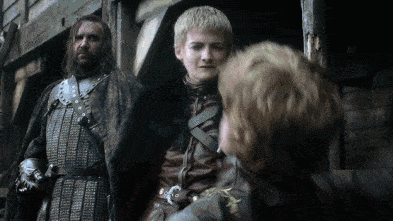Take a photo of a barcode or cover
This one was somewhere between the awesomeness of DIVERGENT and the eyerolling factor of the Morganville Vampire series. I had a hard time believing the premise, and getting behind it as a possibility (Curing love? Really? Society would just fall for that?) but if I allowed myself to pretend I believed it, then it was an interesting concept.
This book was AWESOME!!! I LOVED it!!! It's one of those books that really makes you think, and really takes you on an emotional roller coaster while reading it, it reminded me very much of The Hunger Games trilogy in that way. Delirium was happy, and funny, and cute, and devastatingly heartbreakingly horribly sad. I think everyone should read it, and I cannot wait for the next two books in the series :)
adventurous
slow-paced
challenging
reflective
medium-paced
Plot or Character Driven:
A mix
Strong character development:
Complicated
Diverse cast of characters:
No
- Es un 3.5 , no llega a 4 -
Empezando quiero decir que el libro perfectamente podría haber tenido 100 paginas menos o mas. Tiene muchos detalles que son totalmente innecesarios, ademas del hecho que el libro al principio es muuy lento.
Pero en si, el libro me gusto bastante. Es obvio que tengo un total rechazo a esta sociedad porque me resulta bastante estúpido el pensamiento de que el amor es una enfermedad. Creo que esta sociedad es la peor de todas las que he leído, o una de las peores, prácticamente no podes hacer nada. Se te quita el derecho de amar, de sufrir, etc. Te obligan a hacerte una operación y TODAVÍA a la gente le gusta, y creen que así serán mas felices!! Agg, que bronca, no voy a entrar a hablar mucho en esto porque me voy a ir por las ramas, pero en fin.
Con respecto a los personajes, Lena es una persona que al principio en bastante insufrible, porque piensa igual que el resto de la sociedad, AUNQUE no es igual al resto, hay cosas que ella saben que NO están bien, y luego se va dando cuenta de a poco. No es un personaje que halla amado porque obviamente hay un montón de cosas que me dan ganas de cachetearla y decirle "LENA DESPIERTA!!" , pero no la odie tampoco.
, pero no la odie tampoco.
Su mejor amiga, Hana, no se la desarrolla mucho, no se conoce muucho su personalidad pero se puede ver que es distinta al resto, ya que no hace mucho casa a los toques de quedas y un montón de cosas. Su relación con Lena es rara, sinceramente para mi no parecen mejores amigas en un montón de sentidos, aunque en otros si, pero bueno, eso depende de cada uno!!
Alex es un personaje que aunque al principio fue como. Creo que es un personaje que se puede desarrollar mucho mas en los siguientes libros. Y si, me gusta, es muuy cute, pero creo que todavía no lo conocemos de fondo!!
La "familia" de Lena es INSUFRIBLE!! Por favor, su tia Carol, quitenla del mundo, plz. Y su hermana? si eso es una hermana no se. La única chiquilla que me cayo bien fue Grace, que aunque no habla creo yo que sabes cual es el pensamiento de ella por sus actitudes, y es mucho mas inteligente que un montón de los "adultos".
Es un libro que no pasa mucha cosa en el libro, en si, mucha acción y eso, PERO EL FINAL. EL FINAL. ERA NECESARIO?¿. ¿EN SERIO?. Shit and shit, definitivamente YA quiero empezar el segundo. Es que ... es que ... porqueeeeeeeeee, Alexxxxxxxxxxxxx :(((((((
Empezando quiero decir que el libro perfectamente podría haber tenido 100 paginas menos o mas. Tiene muchos detalles que son totalmente innecesarios, ademas del hecho que el libro al principio es muuy lento.
Pero en si, el libro me gusto bastante. Es obvio que tengo un total rechazo a esta sociedad porque me resulta bastante estúpido el pensamiento de que el amor es una enfermedad. Creo que esta sociedad es la peor de todas las que he leído, o una de las peores, prácticamente no podes hacer nada. Se te quita el derecho de amar, de sufrir, etc. Te obligan a hacerte una operación y TODAVÍA a la gente le gusta, y creen que así serán mas felices!! Agg, que bronca, no voy a entrar a hablar mucho en esto porque me voy a ir por las ramas, pero en fin.

Con respecto a los personajes, Lena es una persona que al principio en bastante insufrible, porque piensa igual que el resto de la sociedad, AUNQUE no es igual al resto, hay cosas que ella saben que NO están bien, y luego se va dando cuenta de a poco. No es un personaje que halla amado porque obviamente hay un montón de cosas que me dan ganas de cachetearla y decirle "LENA DESPIERTA!!"
 , pero no la odie tampoco.
, pero no la odie tampoco.Su mejor amiga, Hana, no se la desarrolla mucho, no se conoce muucho su personalidad pero se puede ver que es distinta al resto, ya que no hace mucho casa a los toques de quedas y un montón de cosas. Su relación con Lena es rara, sinceramente para mi no parecen mejores amigas en un montón de sentidos, aunque en otros si, pero bueno, eso depende de cada uno!!
Alex es un personaje que aunque al principio fue como
Spoiler
wow muchacho, vez 2 veces a la chica y ya te gusta? pero después vemos el hilo de sus sentimientos y entendemos las cosasLa "familia" de Lena es INSUFRIBLE!! Por favor, su tia Carol, quitenla del mundo, plz. Y su hermana? si eso es una hermana no se. La única chiquilla que me cayo bien fue Grace, que aunque no habla creo yo que sabes cual es el pensamiento de ella por sus actitudes, y es mucho mas inteligente que un montón de los "adultos".
Es un libro que no pasa mucha cosa en el libro, en si, mucha acción y eso, PERO EL FINAL. EL FINAL. ERA NECESARIO?¿. ¿EN SERIO?. Shit and shit, definitivamente YA quiero empezar el segundo. Es que ... es que ... porqueeeeeeeeee, Alexxxxxxxxxxxxx :(((((((

emotional
sad
tense
medium-paced
Plot or Character Driven:
Character
Strong character development:
Yes
Loveable characters:
Yes
Diverse cast of characters:
Yes
Flaws of characters a main focus:
Yes
dark
medium-paced
Plot or Character Driven:
A mix
Strong character development:
Yes
Loveable characters:
No
Diverse cast of characters:
No
Flaws of characters a main focus:
Yes
adventurous
dark
emotional
hopeful
tense
slow-paced
Plot or Character Driven:
A mix
Strong character development:
Yes
Loveable characters:
Yes
Diverse cast of characters:
Complicated
Flaws of characters a main focus:
Yes
Originally posted at Fiction Description
This book was a dystopia, that's for sure. An unimaginative, derivative dystopia, whose main 'twist' (love being forbidden) isn't really a twist at all; it's a frequent feature of dystopian literature. I'd say about half of the dystopian novels I've read also have people paired up in assigned couple units: The Giver, Matched... even Brave New World's hypersexual society portrays love as something alien and wrong.
Nevertheless, I'm a huge dystopia fan; there are worse things in the genre than cookie-cutter worlds, and so that alone wouldn't ruin the book for me. However, Oliver does not find redemption on any other front. The romance between Lena and Alex is one of paper-thin instalove. Sorry, best-friend-since-childhood, I won't shift my world view one iota based on your pleas. Oh, hello boy-I-just-met-and-who-I've-been-raised-to-wholeheartedly-believe-is-dangerous, a few days with you and my entire personality has been overhauled! Secondary characters seem pulled out of cliches: evil-stepfamily (and, just like in Cinder, the youngest stepsister is the exception);* stone-hearted policemen; so-much-better-than-me best friend (to prove just how 'ordinary' our heroine is)...
The plot twists are equally trite. Oh, the future dystopian world is enclosed by a fence, outside of which there is no civilization? I wonder where I've seen that before... (for the benefit of the hypothetical reader who has never, ever read a single dystopian novel in their entire life, the answer to that seemingly-rhetorical question is, of course, everywhere.) Coupled with the old 'if you don't see the body' law of fiction, nothing Delirium threw at me came as any sort of surprise.
While there is nothing special about Delirium, I don't mean to suggest that it is an entirely terrible novel. Oliver's prose is rather enjoyable to read, even if her subject matter isn't the most stimulating. I also found the epigraphs at the start of each chapter to be a nice touch; they allow the reader to become a bit more immersed in the culture of Oliver's world, something that is otherwise too scarcely referenced.
Despite my reservations, I have already picked up the second book in the series, Pandemonium. Perhaps some of the more problematic areas of Delirium will be rectified in this second installment, although I certainly won't be holding my breath.
*Yes, technically Lena's adopted family are her cousins, not her stepsisters, but the point still stands.
This book was a dystopia, that's for sure. An unimaginative, derivative dystopia, whose main 'twist' (love being forbidden) isn't really a twist at all; it's a frequent feature of dystopian literature. I'd say about half of the dystopian novels I've read also have people paired up in assigned couple units: The Giver, Matched... even Brave New World's hypersexual society portrays love as something alien and wrong.
Nevertheless, I'm a huge dystopia fan; there are worse things in the genre than cookie-cutter worlds, and so that alone wouldn't ruin the book for me. However, Oliver does not find redemption on any other front. The romance between Lena and Alex is one of paper-thin instalove. Sorry, best-friend-since-childhood, I won't shift my world view one iota based on your pleas. Oh, hello boy-I-just-met-and-who-I've-been-raised-to-wholeheartedly-believe-is-dangerous, a few days with you and my entire personality has been overhauled! Secondary characters seem pulled out of cliches: evil-stepfamily (and, just like in Cinder, the youngest stepsister is the exception);* stone-hearted policemen; so-much-better-than-me best friend (to prove just how 'ordinary' our heroine is)...
The plot twists are equally trite. Oh, the future dystopian world is enclosed by a fence, outside of which there is no civilization? I wonder where I've seen that before... (for the benefit of the hypothetical reader who has never, ever read a single dystopian novel in their entire life, the answer to that seemingly-rhetorical question is, of course, everywhere.) Coupled with the old 'if you don't see the body' law of fiction, nothing Delirium threw at me came as any sort of surprise.
While there is nothing special about Delirium, I don't mean to suggest that it is an entirely terrible novel. Oliver's prose is rather enjoyable to read, even if her subject matter isn't the most stimulating. I also found the epigraphs at the start of each chapter to be a nice touch; they allow the reader to become a bit more immersed in the culture of Oliver's world, something that is otherwise too scarcely referenced.
Despite my reservations, I have already picked up the second book in the series, Pandemonium. Perhaps some of the more problematic areas of Delirium will be rectified in this second installment, although I certainly won't be holding my breath.
*Yes, technically Lena's adopted family are her cousins, not her stepsisters, but the point still stands.
When I first heard about this book I thought "there is no way this concept can be convincing or interesting enough to sustain a book, much less a trilogy." I basically decided to read it to see how far in can I get before getting tired of it. Guess what? I loved it! And you won't understand how fun this book is until you read it yourself.
The concept that Love is now a disease was what initially made me giggle. Really? Love is bad and there is a cure for it? Come on! However, the way Lauren Oliver lays it out in the book, it absolutely makes sense. There were moments when I was literally disturbed by how logical the whole "love is evil" argument was. The only thing I'm left curious about is what the procedure (a.k.a. the cure) actually is - Oliver never describes it (at least not in Delirium) and all we know about it is that it leaves a scar on the neck behind the ear, can have side effects and is performed around the person's 18th birthday.
The book has all the elements you would expect from a young adult novel: extreme circumstances, both sides of an argument, substantial amount of action and cliffhangers, and complicated relationships. What I was pleasantly surprised to find, however, was the richness of the language. In my experience with young adult books, the writing itself usually seems to be more dynamic than descriptive, leaving the language pretty basic and simple. Delirium is definitely a step up from that: every page is filled with vivid imagery and metaphors. I knew exactly what everything looked liked and felt like. I honestly really enjoyed Lauren Oliver's writing style!
Another thing I love about the book is that the main character, Lena, is not your typical "I will break free" heroine. She is not trying to break away from the norm. On the contrary, she cannot wait to be cured and is very set in her beliefs, looking forward to fulfill her role within the society. This alone makes her struggle so much more interesting, as she tries to cling on to everything she has been taught her whole life. As the story unfolds, Lena becomes a very layered character, both in her background and things she goes through. For me, she is a character I felt the closest connection to out of all the books that I have read in the past year.
Needless to say, I absolutely recommend this book. Do NOT be turned off by the concept - it really does work as a part of the story, even though it might sound silly out of context. I enjoyed Delirium way more than I thought I would and the ending left me gasping. I HAD to start Pandemonium right away - it was on my Kindle a minute after I finished Delirium and I was reading it as soon as it was done downloading.
The concept that Love is now a disease was what initially made me giggle. Really? Love is bad and there is a cure for it? Come on! However, the way Lauren Oliver lays it out in the book, it absolutely makes sense. There were moments when I was literally disturbed by how logical the whole "love is evil" argument was. The only thing I'm left curious about is what the procedure (a.k.a. the cure) actually is - Oliver never describes it (at least not in Delirium) and all we know about it is that it leaves a scar on the neck behind the ear, can have side effects and is performed around the person's 18th birthday.
The book has all the elements you would expect from a young adult novel: extreme circumstances, both sides of an argument, substantial amount of action and cliffhangers, and complicated relationships. What I was pleasantly surprised to find, however, was the richness of the language. In my experience with young adult books, the writing itself usually seems to be more dynamic than descriptive, leaving the language pretty basic and simple. Delirium is definitely a step up from that: every page is filled with vivid imagery and metaphors. I knew exactly what everything looked liked and felt like. I honestly really enjoyed Lauren Oliver's writing style!
Another thing I love about the book is that the main character, Lena, is not your typical "I will break free" heroine. She is not trying to break away from the norm. On the contrary, she cannot wait to be cured and is very set in her beliefs, looking forward to fulfill her role within the society. This alone makes her struggle so much more interesting, as she tries to cling on to everything she has been taught her whole life. As the story unfolds, Lena becomes a very layered character, both in her background and things she goes through. For me, she is a character I felt the closest connection to out of all the books that I have read in the past year.
Needless to say, I absolutely recommend this book. Do NOT be turned off by the concept - it really does work as a part of the story, even though it might sound silly out of context. I enjoyed Delirium way more than I thought I would and the ending left me gasping. I HAD to start Pandemonium right away - it was on my Kindle a minute after I finished Delirium and I was reading it as soon as it was done downloading.




